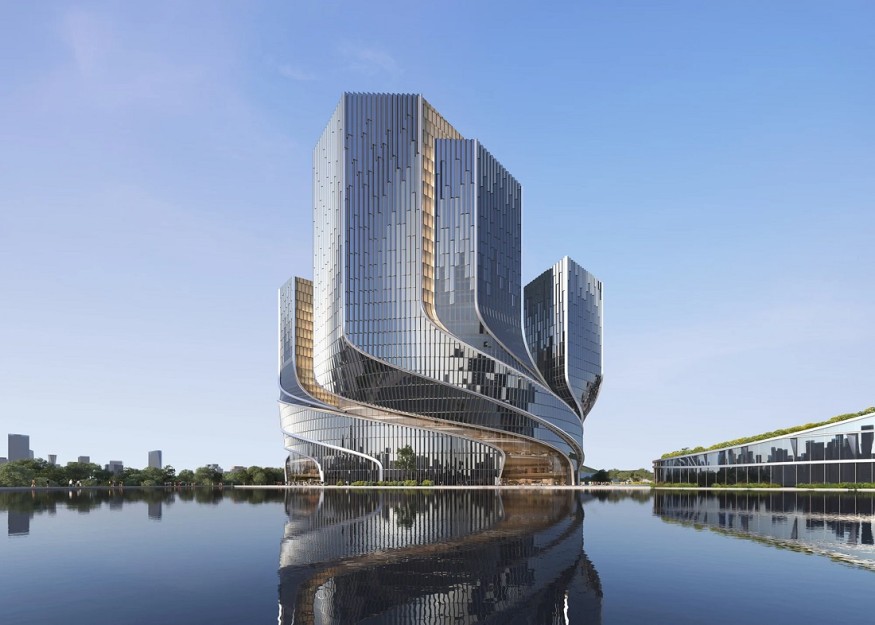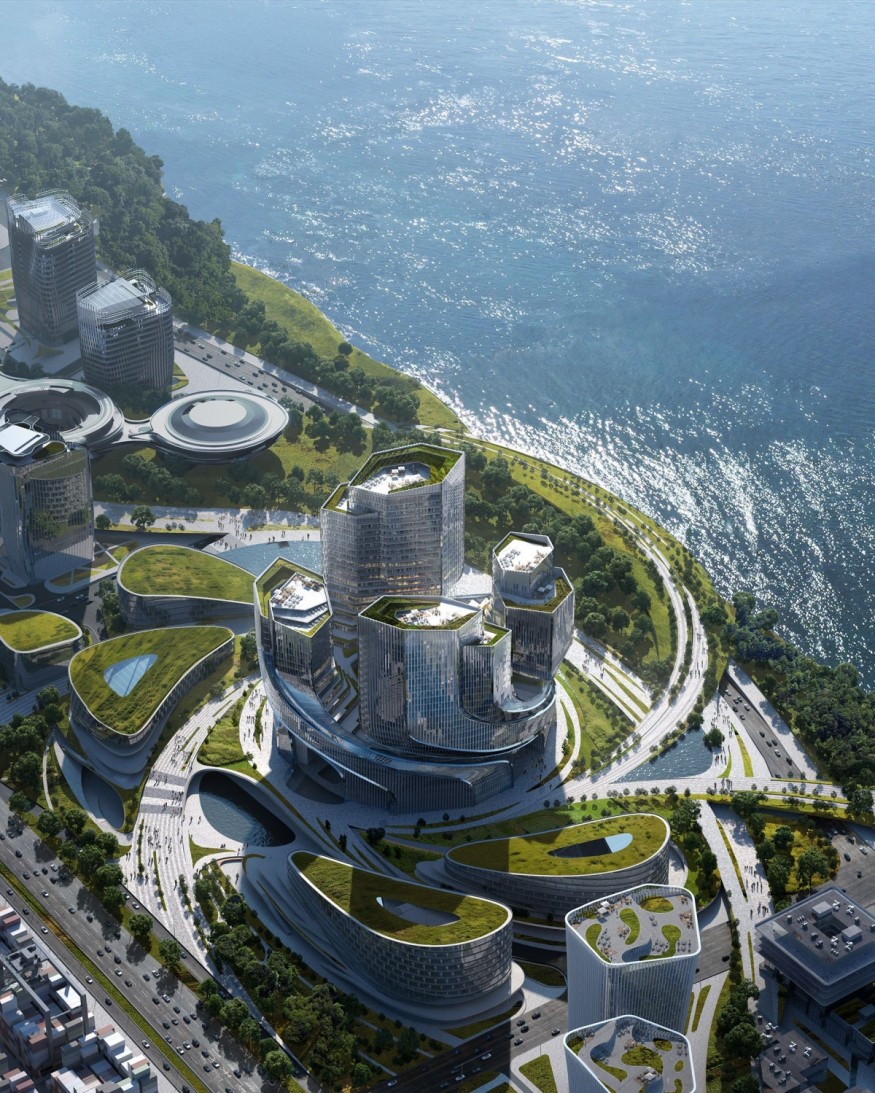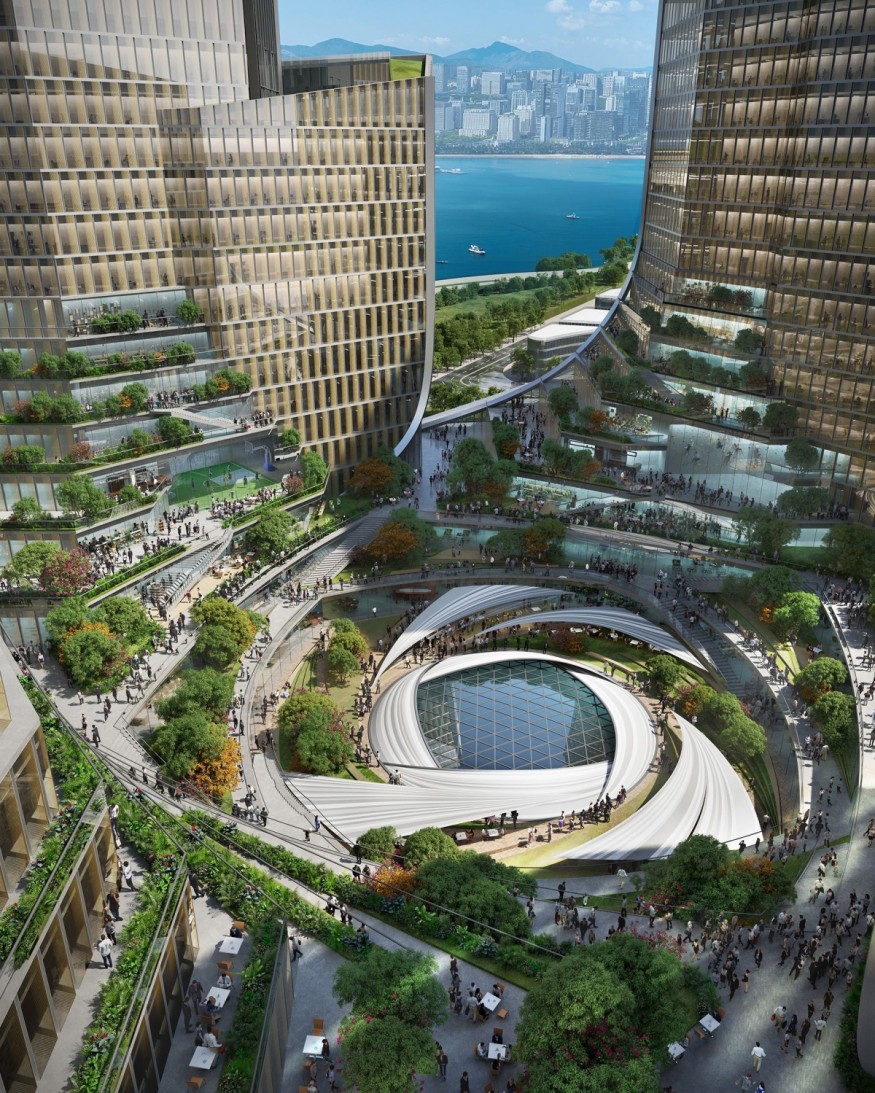Tencent’s Grand Vision: Unveiling Plans for a Revolutionary New Campus

Visionary Campus Unveiling
In a visionary move set to redefine the landscape of corporate headquarters, Chinese tech behemoth Tencent has disclosed the masterful plans for its expansive new campus, Tencent Helix. The architects behind this ambitious project, Büro Ole Scheeren, envision a futuristic structure that not only accommodates over 23,000 employees but also serves as a symbol of innovation and collaboration. This helix-inspired centerpiece is hailed as the "headquarters of the future," promising to be a monumental presence in the southern Chinese city of Shenzhen.

The Helix Concept
Designed by Büro Ole Scheeren, the Tencent Helix boasts a distinctive helix-inspired structure. With four towers spiraling out from a central open space known as the "Vortex Incubator," the design symbolizes a collaborative and interactive environment. The "swirling vortex geometry" is intended to create an ecosystem where work seamlessly merges into a cohesive and dynamic workspace. The structure's appearance will evolve subtly, presenting different facets depending on the viewer's angle. Tencent Helix is not merely an isolated headquarters; it is an integral part of Tencent's broader vision for a "future city." Situated on reclaimed land extending into the Pearl River estuary, this innovative neighborhood will be connected to Shenzhen through ferries and the city's subway system. The predominantly car-free district will redefine the conventional boundaries between public and private spaces, emphasizing connectivity and inclusivity.
Sustainable and Functional Workspace
Architect Ole Scheeren's vision for Tencent Helix rejects the sprawling suburban design common in many US tech campuses. Instead, the invention embraces urbanism, creating a more compact and functional workspace. The helix motif extends beyond the headquarters, with pedestrian pathways spiraling out to connect with the surrounding structures. This approach ensures cohesion and a sense of continuity within the master plan. Scheeren emphasizes incorporating nature into the design, providing a functional workspace that connects employees to the outdoor environment. The helix shape is not just aesthetic; it enhances natural ventilation, and the concept of a "sponge city" is introduced to manage rainwater efficiently, reducing waste and environmental impact. Tencent Helix is a testament to sustainable architecture that blends seamlessly with its surroundings. Ole Scheeren challenges the trend of "gimmicky" corporate campuses, favoring a design that balances functionality with a severe work environment. Tencent Helix is envisioned as a place that recognizes employees as dedicated professionals rather than merely incorporating trendy elements. This departure from conventional office spaces aims to provide an environment that promotes productivity without sacrificing comfort.

A Landmark for the Future
Anticipated to open in time for Tencent's 30th anniversary in 2028, Tencent Helix will replace the company's current main Shenzhen office as its global headquarters. The unveiling of this revolutionary campus marks Tencent's commitment to innovation, sustainability, and redefining the essence of a corporate workspace. As Tencent's grand vision takes shape, the unveiling of Tencent Helix promises to be a landmark moment, not just for the company but for the future trajectory of corporate architecture. The helix-inspired design, coupled with a commitment to sustainability and functionality, positions Tencent Helix as a pioneering example of the evolving nature of workspaces in the 21st century. The architectural marvel is set to become a symbol of Tencent's forward-thinking ethos, inviting employees and visitors alike to experience the headquarters of the future.
Related Article: 7 Latest Architecture and Design Unmissable Events in October
From Digital Models to 3D-Printed Homes: Jaspreet Kaur Lall Explains How the Innovation Changes the Construction Industry

Future Belongs to Green Construction: Sampath Kumar Paspunoori Explains One of the Key Trends in the Construction Industry

Kamala Harris' Campaign Ad Uses Iconic Visuals from Carrie Mae Weems to Connect with Voters

Historic Ancient Roman Ruins in Baalbek Remain Strong After Israeli Air Strikes; Locals Seek Cultural Protection

4 Ways to Honor Departed Loved Ones in Your Home Design













